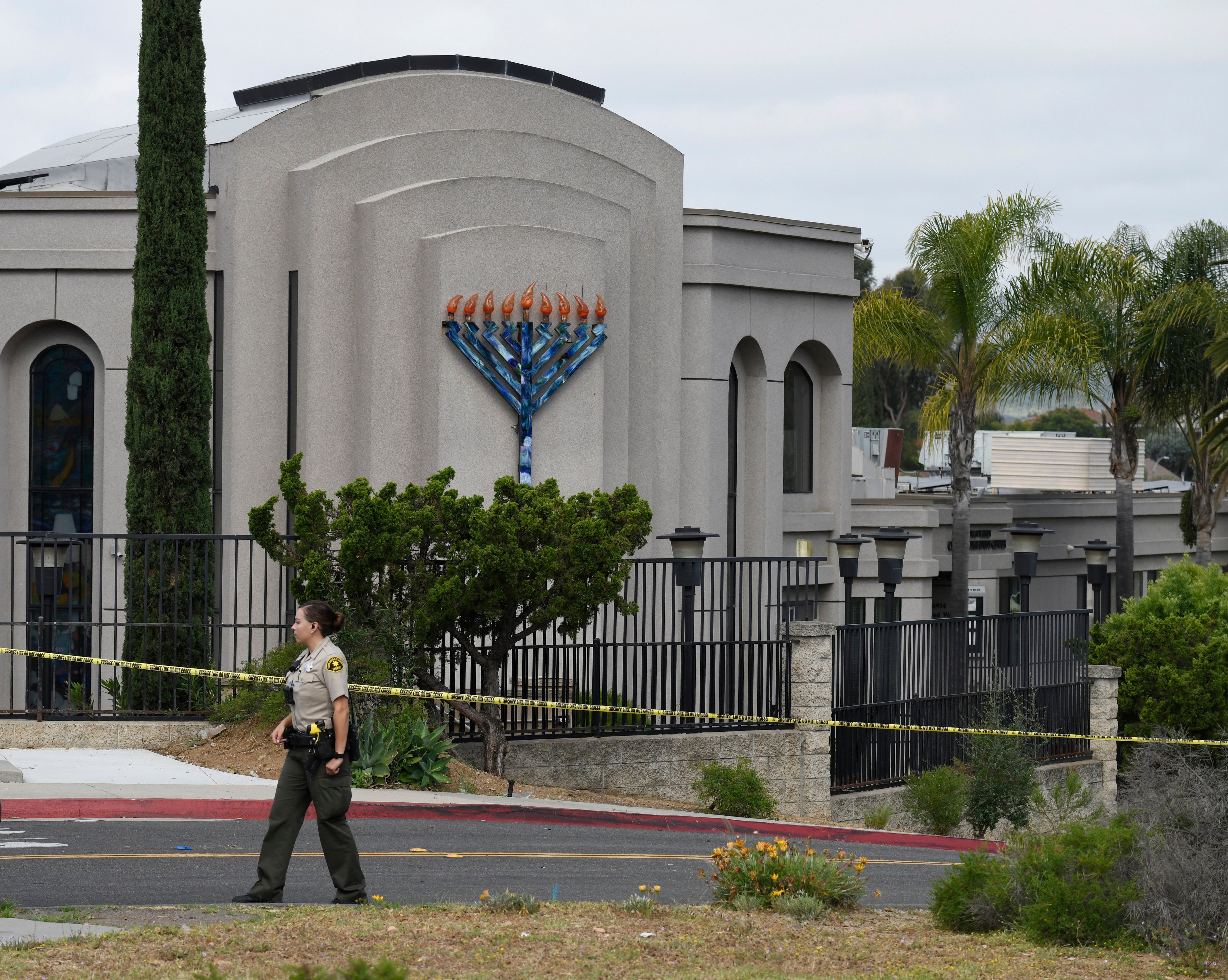Victims of California synagogue shooting can sue gunmaker
A California judge has decided victims of the 2019 synagogue shooting near San Diego that killed one worshiper can sue the manufacturer of the semiautomatic rifle and the gun shop that sold it to the teenage gunman

Your support helps us to tell the story
From reproductive rights to climate change to Big Tech, The Independent is on the ground when the story is developing. Whether it's investigating the financials of Elon Musk's pro-Trump PAC or producing our latest documentary, 'The A Word', which shines a light on the American women fighting for reproductive rights, we know how important it is to parse out the facts from the messaging.
At such a critical moment in US history, we need reporters on the ground. Your donation allows us to keep sending journalists to speak to both sides of the story.
The Independent is trusted by Americans across the entire political spectrum. And unlike many other quality news outlets, we choose not to lock Americans out of our reporting and analysis with paywalls. We believe quality journalism should be available to everyone, paid for by those who can afford it.
Your support makes all the difference.A California judge decided victims of the 2019 synagogue shooting near San Diego that killed one worshiper and wounded three can sue the manufacturer of the semiautomatic rifle and the gun shop that sold it to the teenage gunman, according to a newspaper report.
Superior Court Judge Kenneth Medel said Wednesday that victims and families in the Poway, California, synagogue shooting have adequately alleged that Smith & Wesson, the nation’s largest gunmaker, knew its AR-15-style rifle could be easily modified into a machine-gun-like or an assault weapon in violation of state law.
A 2005 federal law shields gunmakers from damages in most cases for crimes committed with their weapons. But it allows lawsuits if the manufacturer was negligent or knowingly violated a state or federal law, the San Francisco Chronicle reported Thursday.
Medel said the plaintiffs may also be able to sue on their claims that Smith & Wesson negligently marketed the rifle to youths on social media and video game-style ads, the newspaper said.
The judge also said the shop, San Diego Guns, could be sued for selling the weapon to John Earnest, who was 19 and lacked a hunting license that would have exempted him from California’s 21-year minimum age for owning long guns.
Prosecutors say Earnest, a nursing student, opened fire with a semi-automatic rifle during the last day of Passover services in April 2019. The attack killed 60-year-old Lori Gilbert-Kaye and wounded three others, including an 8-year-old girl and the rabbi, who lost a finger.
Earnest then allegedly called 911 to say he had shot up a synagogue because Jews were trying to “destroy all white people,” authorities said.
Earnest faces state murder charges carrying a potential death sentence and federal hate-crime charges.
Wednesday's ruling is a victory for “all Americans who believe that the gun industry is not above the law,” said Jon Lowy, chief counsel for the Brady Campaign to Prevent Gun Violence, which sued on behalf of the victims.
Lawyers for Smith & Wesson didn't immediately respond to the Chronicle's request for comment.